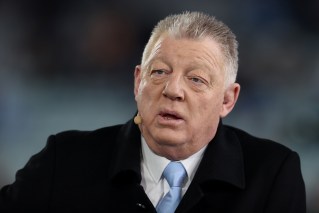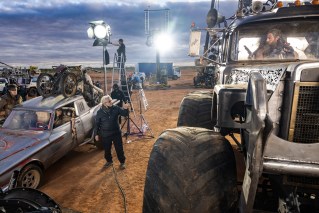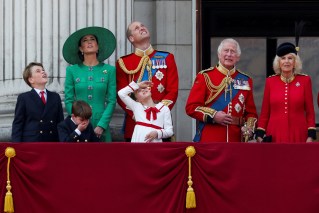It has been a turbulent ride, but Alan Joyce’s Qantas joy flight has finally hit the tarmac.
Unless you’re living under a rock, you’ve probably heard by now that the closest person Australia had to a celebrity CEO, much as it pains me to say that, resigned from his position on Tuesday, effective immediately.
But how did such an iconic Australian brand find itself in such a mess? Where did it all go wrong?
I can’t answer either of those questions. Although I do know of several occasions where it’s famously clear that things didn’t go right, at least not for Qantas employees anyway.
Industrial action and a grounded fleet
In 2011, just a brisk few years after taking over in 2008 as CEO, Joyce found himself in the midst of one of the largest Australian industrial disputes in recent times.
Qantas was negotiating an enterprise agreement with its workforce, which included pilots, baggage handlers and caterers, and the workers had been taking protected industrial action in support of various claims they were pursuing. At the time those claims included concerns about the outsourcing and offshoring of jobs.
Then on October 29, 2011, Qantas gave notice that it was taking industrial action against those workers, to lock them out and ground its entire workforce worldwide.
With the national carrier effectively out of the skies, the federal government, supported by Queensland, Victorian and New South Wales state governments, made a rare move to apply to the then Fair Work Australia, and have the Qantas lockout terminated.
Termination of the lockout would force Qantas to return the business to operation, with the government arguing that the grounding of the fleet would cause “significant damage to the Australian economy”.
Fair Work Australia found that although the action being taken by the workers wasn’t causing that kind of damage to the economy, Qantas’ decision to lockout the workforce and ground the entire fleet would.
The termination was granted, and Qantas took to the skies once more, allowing stranded passengers and cargo around the globe to reach their destinations.
Lockouts and bonuses
At the same time as the looming lockout, Qantas held its AGM, during which the Daily Telegraph reported shareholders booed when it was announced that Joyce would receive a $2 million bonus for the year.
That same year, The Sydney Morning Herald reported that Joyce’s pay would be increased by 71 per cent from the previous financial year, to a healthy $5.01 million.
That’s not bad, but by 2023 it’s starting to look a little skinny when you consider that his pay packet is estimated at $12 million without bonuses.
Stand downs and COVID-19
In 2020, the great Australian airline was back in court again with its workforce. This time it wasn’t about industrial action though; it was about whether their employees could take sick leave while they were stood down because of the global pandemic.
Under the Fair Work Act, Qantas was able to stand down 20,000 of its workers without pay because of the pandemic and the government stay-at-home directives.
At the time the move to stand down was decried by ACTU secretary Sally McManus as, “not acceptable” and was made “one day after the airline industry was provided with a $715 million taxpayer bailout package”.
To add insult to injury, during the stand down, some employees tried to access their sick pay entitlements just like they would if they had been at work.
Qantas denied the payment of sick leave and the issue ended up in the Federal Court, this time the court siding with Qantas. Fair play, you might think, but by the end of 2021 it was estimated that Qantas had received about $2 billion in government support for the pandemic.
And the third time’s a charm
Sometimes people mess up and choose the wrong side in an issue. Maybe the first 10 years under new management were a bit rocky here and there, but overall, they meant well. Maybe.
In November 2020, once again under Joyce’s stewardship, Qantas decided to outsource the jobs of the ground handlers at 10 airports around Australia, which resulted in the termination of about 1680 employees.
Again, Qantas found itself in the Federal Court, fighting against its employees. This time, the court decided that Qantas had taken “adverse action” against the employees and had breached the Fair Work Act by sacking them.
The decision has been appealed by Qantas to the High Court. What the High Court decides to do with the issue remains to be seen, but there’s a pattern that has been established under the Joyce leadership that is hard to miss.
What about the ‘Spirit of Australia’?
The erosion of public support and good employee relations under Joyce has not been sudden, but it has certainly been consistent.
Hopefully though, “as the world gets older and colder” we can rely on those great words from the Peter Allen song which the airline has adopted as its anthem.
With a change in the guard at the top table, reputation can be restored, so that “some day we’ll all be together once more”, and Qantas can still call Australia home.
Scott Riches is a former union official with the Electrical Trades Union Victorian branch, and a practising employment lawyer. He is also a volunteer in the employment clinic at the Fitzroy Legal Service









